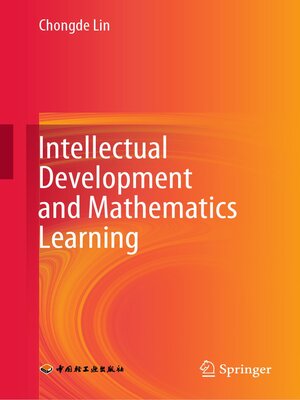
Sign up to save your library
With an OverDrive account, you can save your favorite libraries for at-a-glance information about availability. Find out more about OverDrive accounts.
Find this title in Libby, the library reading app by OverDrive.



Search for a digital library with this title
Title found at these libraries:
| Loading... |
This book introduces the outcomes of author's 40 years of research, especially the theory of "the Triangular Pyramid Structure of Thinking" that he independently proposed, and the application of his development theory in the field of mathematics education. The book firstly explains the substantial character of intelligence, the development law of intelligence, and the relationship between intelligence development and creativity cultivation. Secondly, it discusses the structure of mathematical thinking of children and adolescents from 0 to 18 years old, and the methods of developing students' thinking ability and the quality of intelligence through arithmetic learning. In the end, this book also demonstrates the characteristics of the development of mathematical thinking ability of children at age 0-6, elementary school students, and secondary school students, and the related latest research in this field. Based on the theory of "the Triangular Pyramid Structure of Thinking", a number of examples are given to illustrate how the theory of intelligence development can be used in mathematics teaching to promote the development of students' thinking abilities and to improve the quality of teaching.
This book covers various areas including psychology, mathematics, and education. It has a great reference value for scholars in the field of psychology to study the theory of intelligence and the structure of thinking, providing guidance for parents and mathematics teachers to promote children's quality of intelligence and mathematical thinking abilities, and to enhance their mathematics learning effects. In addition, it provides examples for psychological research to serve specific subject teaching in elementary and secondary schools.
This book covers various areas including psychology, mathematics, and education. It has a great reference value for scholars in the field of psychology to study the theory of intelligence and the structure of thinking, providing guidance for parents and mathematics teachers to promote children's quality of intelligence and mathematical thinking abilities, and to enhance their mathematics learning effects. In addition, it provides examples for psychological research to serve specific subject teaching in elementary and secondary schools.






